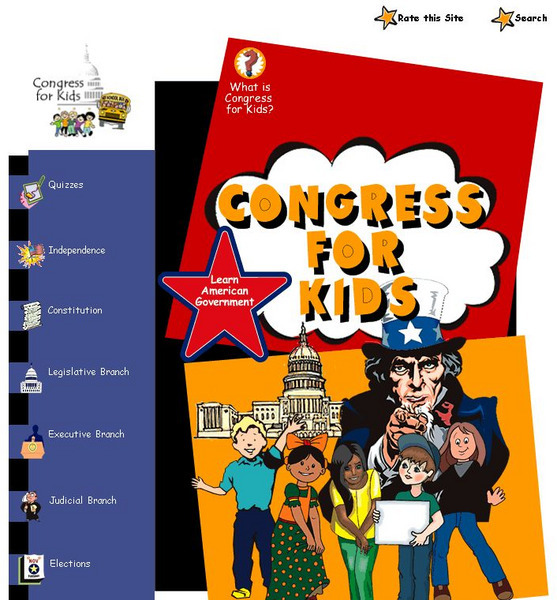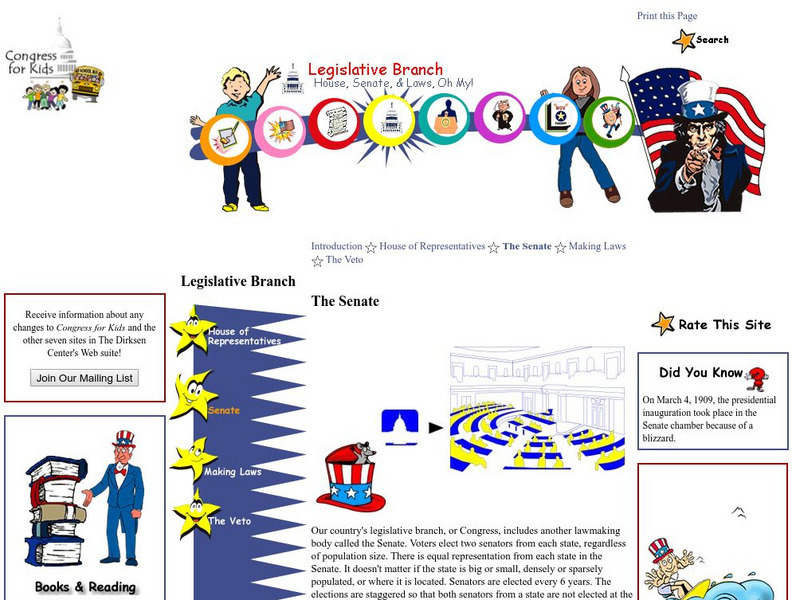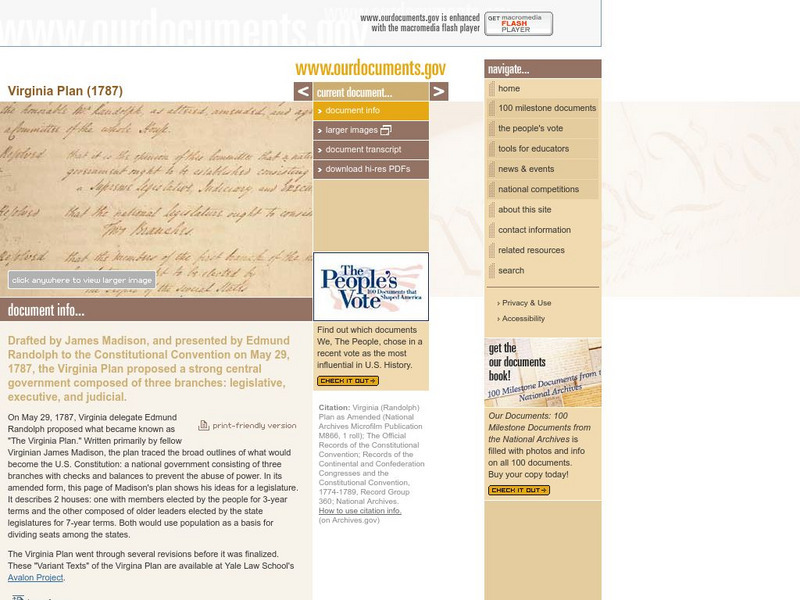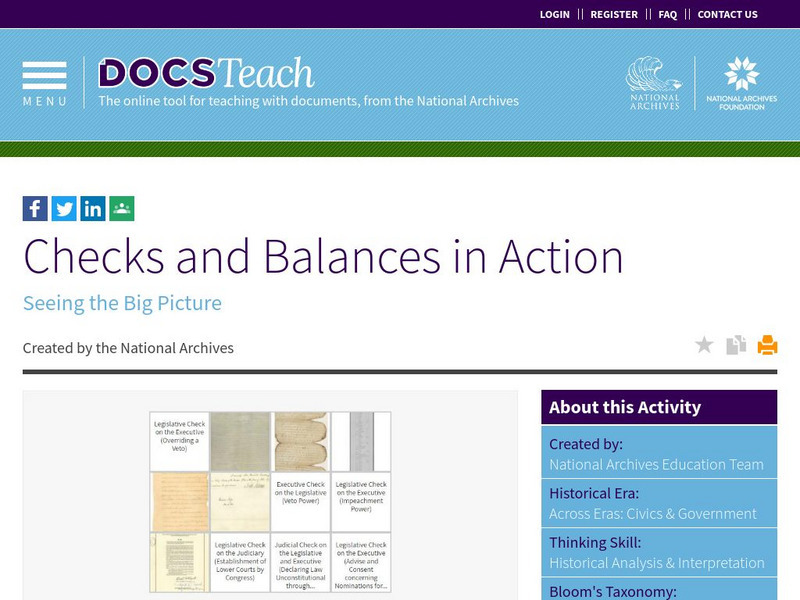Other
Choctaw Nation of Oklahoma: Government
The Choctaw Nation's governing structure is set forth in its revised 1984 constitution. Like the U.S. government, there are three branches, executive, legislative and judicial. Read about how the tribal government of this Choctaw Nation...
University of Groningen
American History: Outlines: The Legislative Branch: The Reach of Congress
This well-written and well-organized site from The Legislative Branch provides a thorough overview of congressional powers, inherent checks and balances, as well as links to related information.
University of Groningen
American History: Outlines: The Cabinet
Outline of the Executive Branch Cabinet offices and date created.
University of Groningen
American History: Outlines: Little Legislatures
This site from the University of Groningen clearly defines the role of committees in the legislative process, as well as a brief historical perspective on congressional committees. Essays, text and biography links related to American...
Stephen Byrne
History for Kids: Government of North America
Reference material for elementary students who are learning about U.S. Government provides an overview of the three branches of government outlined in the U.S. Constitution and a glimpse into the political party system.
Walled Lake Consolidated Schools
Loon Lake Elementary: Branches of Government
A concise, organized table of information breaking down the three branches of government which govern the United States of America.
New York Times
New York Times: Crossword Puzzle: The American Judicial System
The New York Times Learning Network has an interactive & printable crossword puzzle on The American Judicial System.
ClassFlow
Class Flow: Government Glossary
[Free Registration/Login Required] In this lesson Activotes are used to access student's prior knowledge of the principles of the US constitutional government. Student knows the essential principles stated in the US Constitution-...
American Presidency Project
American Presidency Project: Harry S. Truman: Executive Order 9835: Employees Loyalty Program
Primary source document of the executive order issued March, 1947, by Harry S. Truman, which outlines procedures for administering the Employees Loyalty Program in the executive branch of Government.
Annenberg Foundation
Annenberg Learner: Democracy in America: The Constitution: Fixed or Flexible?
This unit explores the timeless qualities of The U.S. Constitution, the opportunities to amend it, and how it is a pillar of the American identity, through these activities, videos, and outside resources.
Center For Civic Education
Center for Civic Education: How Constitution Used to Organize the New Govt [Pdf]
This lesson describes how, using the guidelines provided in the Constitution, the First Congress in April 1789 named the new president and vice president, provided funding for the new government, organized the executive branch, organized...
The Dirksen Congressional Center
Congress for Kids
Take a tour of the federal government with Uncle Sam and learn the story of the Declaration of Independence, the Constitution, the three branches of government, and elections. Along the way learn how laws are made, about the Bill of...
iCivics
I Civics: Curriculum Units
A large collection of Social Studies units, WebQuests, and games that focuses on teaching students how government works and the importance of being responsible, informed American citizens. Units are linked to state standards. A teacher...
Other
Data: Empowering People
Find, download, and use datasets generated by the executive branch of the U.S. federal government to learn about our nation and the world.
The Dirksen Congressional Center
Congress for Kids: Legislative Branch, the Senate
Activities that students can use to understand the job of the US Senate, and become more engaged in the legislative process.
University of Groningen
American History: Outlines: Congress Oversight Power
This excellent site from the University of Groningen provides a clear overview of the oversight function of Congress. Related American History links include text, essay, and biographical resources.
University of Groningen
American History: Outlines: The Reach of Congress
Although short, this article very clearly describes the investigative powers of Congress and their importance. Links to other American History topics are available, as well.
iCivics
I Civics: Anatomy of the Constitution
This lesson gives an article-by-article overview of the structure and function of the U.S. Constitution. Learners learn about the duties and powers of the three branches, the amendment process, and the role of the Constitution as the...
Khan Academy
Khan Academy: Congress: The Senate and the House of Representatives: Foundational
This resource from Khan Academy provides practice questions over the Senate and the House of Representatives. These practice questions are intended for students taking a high school or college level American Government and Civics...
US National Archives
Our Documents: Virginia Plan (1787)
Read the complete text of the Virginia Plan that proposed a strong central government consisting of three branches. You can also view images of the original drafts.
US National Archives
Nara: Charters of Freedom: Constitution of the United States
Comprehensive overview of the U.S. Constitution. Places the Constitution in context with two other founding charters of American democracy and government, the Declaration of Independence and the Bill of Rights. Includes access to digital...
National Endowment for the Humanities
Neh: Edsit Ement: Understanding the President's Job
What does the President do? Understanding how our democracy works includes understanding how the Executive branch of our government works. Teachers can use this lesson plan to explore with students the job of the President. Academic...
Other
A Republic, if You Can Keep It
An essay by U.S. Congressional Representative Ron Paul of Texas on the state of the American republic delivered at the dawn of the twenty-first century. He argues for the strong separation of powers among the three branches of government...
US National Archives
Docs Teach: Checks and Balances in Action
In this activity, students will analyze documents that span the course of American history to see examples of 'checks and balances' between the legislative, executive, and judicial branches in action. Students will then match the...
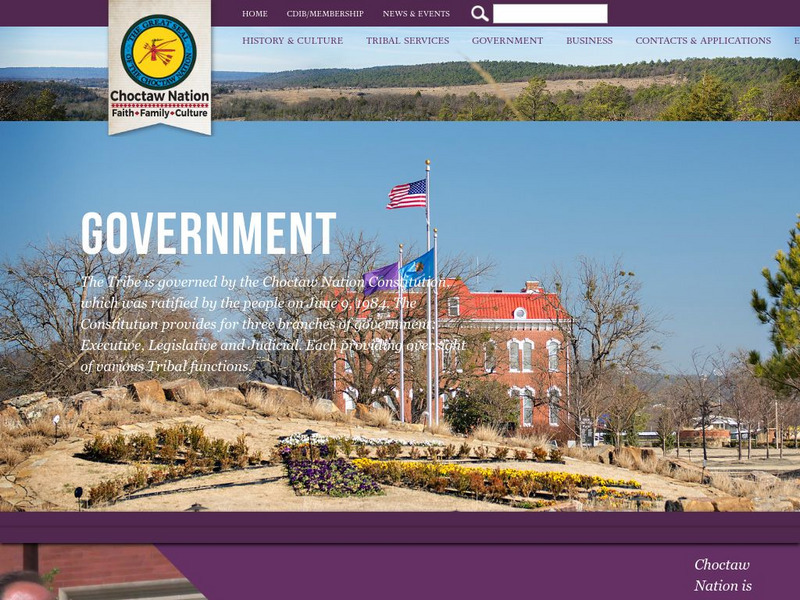




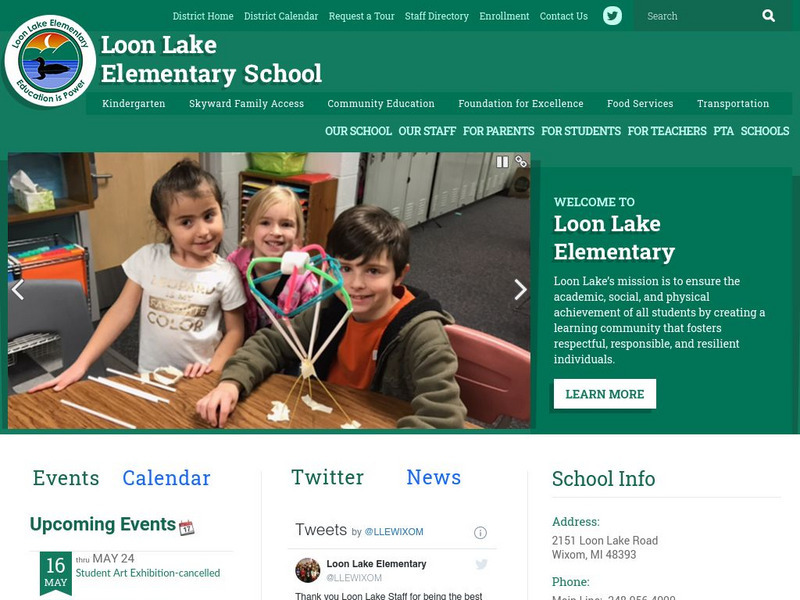



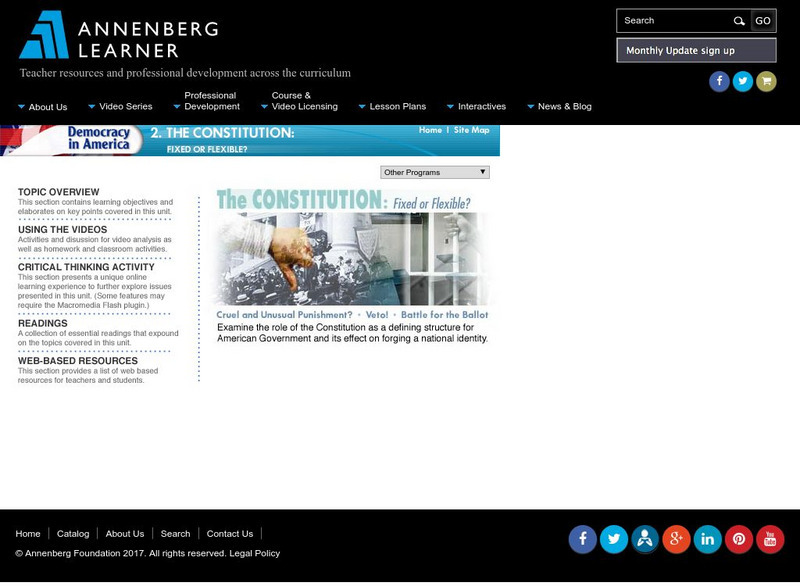
![Center for Civic Education: How Constitution Used to Organize the New Govt [Pdf] Lesson Plan Center for Civic Education: How Constitution Used to Organize the New Govt [Pdf] Lesson Plan](https://static.lp.lexp.cloud/images/attachment_defaults/resource/large/FPO-knovation.png)
